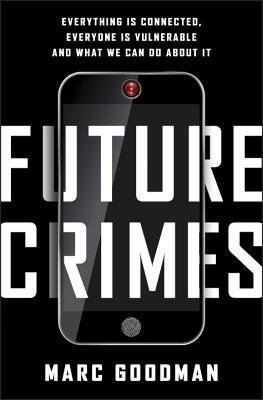What do you think?
Rate this book


393 pages, Hardcover
First published February 24, 2015








"But 'I have nothing to hide' is absolutely the wrong way to think about our new dataveillance society. [...] If proponents of the 'nothing to hide' argument meant what they said, then they would logically not object to our filming them having sex with their spouses, publishing their tax returns online, and projecting video of their toilet use on the Jumbotron of a crowded stadium, right? After all, they have nothing to hide. [...] Given that Google and Facebook alone have hundreds of petabytes of data on their users stored in perpetuity, perhaps it is more worthwhile to question not what any of us may have to hide today but what we might wish to keep private in the future [...]." (p. 110)
"We quite literally speak two different languages. [...]
The products that are meant to secure and protect us give us helpful warnings such as: 'Alert: Host Process for Windows Service Using Protocol UDP Outbound, IPv6NAT Transversal-No, is attempting to access the Internet. Do you wish to proceed?' What the hell does that mean? Nobody knows, except for the original authors of this 'helpful' warning. [...]
Why would people write down their password on Post-it notes and stick them on their computers? Because making people change them every two weeks and requiring that they be at least twenty characters long, with an uppercase letter, a number, a symbol, a haiku, and in iambic parameter, is just too much for the average users to handle." (p. 532-534)
"Terrorists seem to be getting the message and both the 2004 Madrid bombings at the Atocha train station, in which 190 people were killed and nearly 2, 000 wounded, and the 7/7 London bombings, in which 52 civilians were slain and over 700 injured, were funded in whole or in part through hacking and credit card fraud." (p. 51)
"Either openly or behind closed doors, the majority of the software industry operates under a variation of the motto 'Just ship it' or 'Done is better than perfect.' Many coders knowingly ship software that they admit 'sucks' but let it go, hoping, perhaps, to do better next time. [...]
This complexity, coupled with a profound laissez-faire attitude toward software bugs, has led Dan Kaminsky, a respected computer security researcher, to observe that today 'we are truly living through Code in the Age of Cholera.' " (p. 517 - 518)
"Today you don't even need to be a synthetic biologist to get access to the tools of genetic sequencing. [...] They're called 'discreet DNA samples', and they can be processed for around 100$ each. Not sure if you want to hire that new guy who came into your office for the interview? Just send off the coffee cup he left behind to the lab to see if he might be a risk for a bunch of expensive disease that could cost your company a bundle. [...] Believe it or not, taking a stranger's DNA and sending it off to the lab is completely legal [...]." (p. 495)